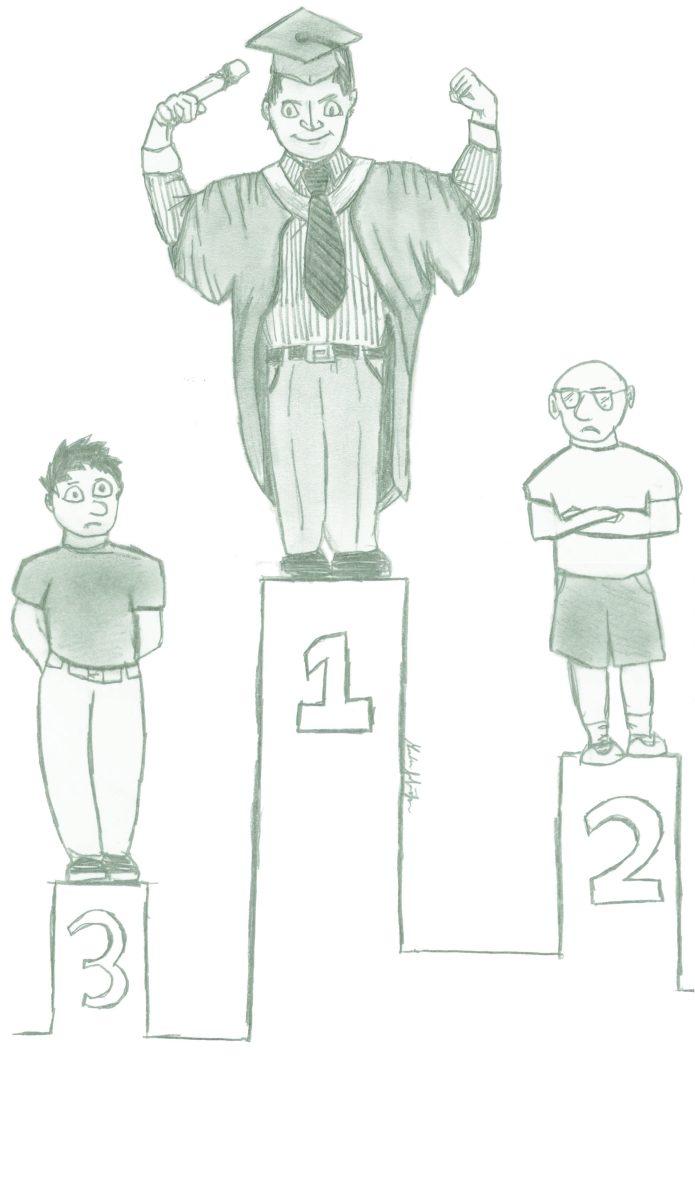While it doesn’t feel particularly nice to come in second, third, or fourth, everyone loves to be the best. But for there to be a best that actually means anything, there must be many, many people who are not the best. It’s unfortunate, but it’s the way things work.
This is obviously the model of the real world, but it’s also the way college grading works. Many classes, especially those in the upper levels, are based on curves. It becomes less a matter of how well you can do and more of how well you can do compared to everyone else.
This does cause one major problem — it makes students want other students to fail.
If you were only able to answer three of five problems on your test this morning, everything is still totally fine if the average is 50 percent, assuming the class has a curve — an assumption for which, I may be docked points.
We’ve all seen those television shows in which medical school students set out to sabotage their peers in hopes of landing in the top of their classes. While in my experience this doesn’t seem to be the norm, it’s definitely an existent phenomenon.
Some people think this is wrong, but I disagree. Competition is a natural and often healthy element of human nature.
I’ll be the first to say school should be more about learning and less about figuring out the best shortcuts for good grades. But it’s important we don’t kid ourselves here. Education, especially at the university level, is very much about deciding who is the best.
What did your parents, teachers and family members tell you about school when you were younger? Did they go on and on for hours about how rewarding it is to gain and apply knowledge? Hopefully so, but probably not.
It’s more likely that you kept hearing about how if you work hard and do your best in school, you’ll have the opportunity to live a comfortable and happy life. While I personally believe education is an end in itself, we can’t deny that it’s also a means to another end.
There’s a reason there are so many resources on campus to help you get jobs. There’s a reason companies specifically come here to interview people, and there’s a reason you even put your GPA on your résumé.
As an employer who presumably wants to run a successful business, you aim to find those who are most willing and able to make that happen. Do you want to pick a name out of a hat and hope things work out? No, you probably want to find the best students in your field.
While the competitive nature of school adds a significant amount of what some would consider unnecessary stress, it also provides a lot of motivation that wouldn’t have otherwise been there.
I know I can say I’ve worked much harder to get good grades than I would have if I had been doing it just for fun, as shallow as that sounds.
While we might not all like having to constantly struggle to not be the worst, it’s a necessary condition of the college environment.
Ryan Monk is a 22-year-old chemical engineering senior from Lake Charles, Louisiana. You can reach him on Twitter @RyanMonkTDR.
Opinion: Academic competition brings stress, motivation
By Ryan Monk
October 23, 2014
Competition toon
More to Discover











